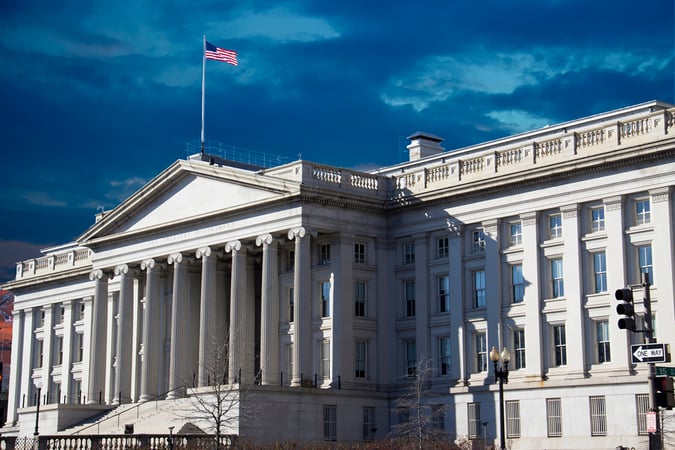The 2-year and 10-year Treasury yields dropped Tuesday as investors await the legislative voting outcome on the debt ceiling bill.
US Treasury yields slumped today ahead of a Congress on the federal government’s proposed debt ceiling bill. Treasury yields tumbled Tuesday as markets reopened, with investors bracing themselves for a lawmaker vote on the Biden administration’s 11th-hour debt ceiling proposal.
Late Sunday, US President Joe Biden and House Speaker Kevin McCarthy struck a deal to raise the nation’s debt ceiling, thereby preventing a default. Although both political leaders avoided a potential first-ever government default, the presidency must get Congress on board before a June 5th deadline.
As of early morning Eastern Time, the 10-year Treasury yield traded lower by 10 basis points at 3.719%. The 2-year Treasury yield was also down 7 basis points to 4.514%.
Elsewhere, the recently-released April personal consumption expenditures price index still weighed heavily on investors. Last Friday, the price index came in at 0.4% monthly, which surpassed expectations. Commenting at the time on the May 26th PCE report, Key Private Bank CIO George Mateyo said:
“With [Friday’s] hotter-than-expected PCE report, the Fed’s summer vacation may need to be cut short as consumers’ vacations fuel spending. Prior to [Friday’s] release, we believe that the Fed may have been hoping to take the summer off (i.e., pause and reassess), but now, it seems as if the Fed’s job of getting inflation down is not over.”
Investors to Take Cues From Treasury Yields & Debt Ceiling Voting Outcome in Uncertain Economic Clime Plagued by Rising Interest Rates
Much uncertainty remains over the Federal Reserve’s interest rate policy, especially regarding future rate hikes. For now, investors remain on edge and continue to take cues from fiscal data, more of which are expected throughout this week. However, all eyes would also be trained on Congress, with debt ceiling voting expected to occur between now and Friday.
Republicans and Democrats from the upper and lower legislative chambers are currently mulling the bill. According to reports, the House of Representatives could vote by Wednesday, with the Senate following suit later in the week.
Despite the bill’s perceived unpopularity, Biden remains optimistic that his proposal would secure the necessary bipartisan support for implementation. On Sunday, the US president implored both sides of Congress to come together to swiftly implement the debt ceiling agreement. Furthermore, the commander-in-chief expressed relief at having a deal with the Republican McCarthy. According to Biden, the agreement “prevents the worst possible crisis” and “takes the threat of a catastrophic default off the table”.
The bill, dubbed the “Fiscal Responsibility 5 Act of 2023”, allows the government to borrow more and spend on social welfare schemes. However, the debt ceiling proposal also calls for cuts to other spending excesses in other areas.
Biden’s US debt ceiling proposal struck out a crypto tax bill proposed in March. The Digital Asset Mining Energy (DAME) excise tax sought to impose a 30% levy on mining firms for environmental and societal damage.
Tolu is a cryptocurrency and blockchain enthusiast based in Lagos. He likes to demystify crypto stories to the bare basics so that anyone anywhere can understand without too much background knowledge.
When he’s not neck-deep in crypto stories, Tolu enjoys music, loves to sing and is an avid movie lover.
Subscribe to our telegram channel.
Join




